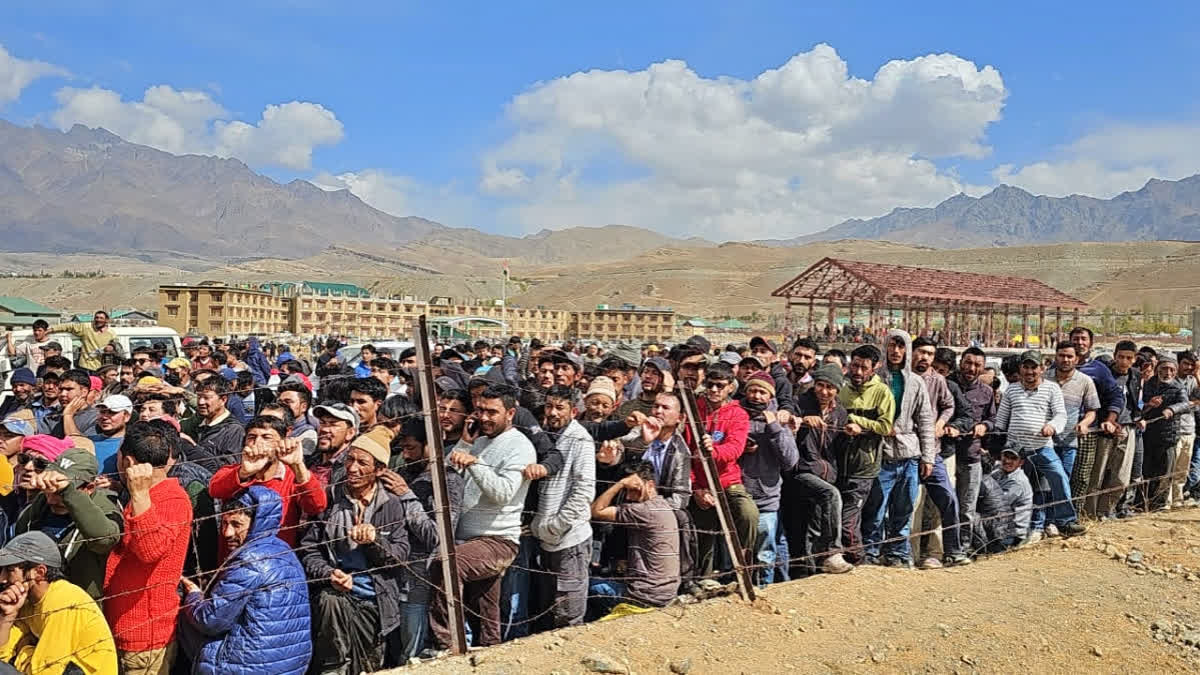Srinagar (Jammu and Kashmir): In the Ladakh Autonomous Hill Development Council (LAHDC)-Kargil elections that concluded earlier this month, Congress won 10 seats and the National Conference 12 seats. As many as 74,026 voters including 46,762 women participated in the elections.
Earlier in the 2020 Ladakh Autonomous Hill Development Council (LAHDC)-Leh elections, the Bharatiya Janta Party had won 15 seats while the Congress had won nine seats. 89,776 including 45,025 voters participated in these elections.
Interestingly, these two elections were the first to be held in Ladakh UT after the abrogation of Article 370. Further, in Kargil, 77.61 percent voters participated, while in Leh, 65.07 percent voters participated. While the Leh elections were held amid the pandemic, the voters in the Kargil elections did not cast their votes in favour of the BJP.
Pertinently, the last assembly elections in Jammu and Kashmir were held in 2015 and since June 20, 2018, the region has been without any elected government. First there was a Governor's rule for 182 days and then the President's rule was imposed on December 20 which continues till now. Jammu and Kashmir has been without any elected government for the past four years, nine months and 24 days.
While general elections are going to be held in India next year, the Election Commission has not issued a notification regarding the assembly elections of Jammu and Kashmir. As far as the electoral roll is concerned, before the abrogation of Article 370, there were a total of 78,44,343 voters in Jammu and Kashmir, including 159 transgenders, 37,75,891 women and 40,68,185 male voters. However, with the partition of Jammu and Kashmir, the electorate was also partitioned. 1,63,802, including 91,787 women, voters now belong to Ladakh while the remaining 77,52,556 voters are still with Jammu and Kashmir.
According to the Election Commission's latest handbook, there are currently 76,29,099 general voters in Jammu and Kashmir. Among them three are transgenders and 36,62,058 are women. It has another 355 overseas voters, including 51 women. There are 76,963 voters belonging to security forces/services out of which 1,212 are women.
Meanwhile, Ladakh has three transgenders registered as voters in a total of 1,80,229, while 89,492 are women voters. According to the handbook, Ladakh has a total of 12 overseas voters of which four are women. Similarly, there are 5,628 voters belonging to security forces/services, including 45 women.
Also read: Omar Abdullah asks NC cadre not to waste fuel on campaigning as J&K elections look out of sight



